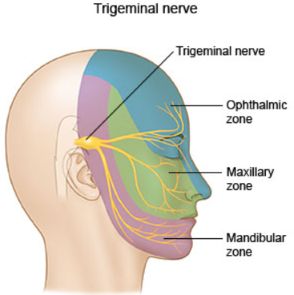Eye check
Eye is one of the most important sensory organ in our body. In this article, I will explain in details about eye examination.
Eye exam is best to be done through optometrist, given they have the expertise and equipments to do so. The cost of eye exam depends on individual optometrist. If you are Australian citizens or permanent residents, eye examinations provided by optometrist will be subsidised by Medicare. Optometric benefits can be qualified without having private health insurance. Some optometrists bulk billed for eye examination so it is crucial for you to shop around.
Hay fever (Allergic rhinitis)
Hay fever is a common condition also known as Allergic rhinitis. It is an allergic condition that affects nose and eyes.
Symptoms:
- sneezing
- a runny or stuffy nose
- itchy ears, nose and throat
- red, itchy or watery eyes
- headahes
Postnasal drip, cough, irritability and fatigue are other common symptoms.
Risk factors for hay fever:
- Family history of atopy (i.e genetic susceptibility to develop allergic diseases)
- Male sex
- Birth during the pollen season
- First born status
- Early use of antibiotics
- Maternal smoking exposure in the first year of life
- Exposure to indoor allergens, such as dust mite allergen
Trigeminal neuralgia
Trigeminal neuralgia is characterised by recurrent brief episodes of one-sided electric shock-like pains, sudden onset and termination, in the distribution of one or more divisions of the trigeminal nerve that are typically triggered by light touch on face. Trigeminal neuralgia is a rare condition that affects women more than men. Trigeminal neuralgia is commonly seen more in the older adult population. The incidence increases gradually with age; most idiopathic cases begin after the age 50, although onset may occur in the second or third decades or, rarely, in children.
The trigeminal nerve is the 5th cranial nerve. It is the sensory supply to the face and the sensory and motor supply to the muscles of mastication (chewing). It has three major divisions:
- Ophthalmic (V1)
- Maxillary (V2)
- Mandibular (V3)
The nerve starts at the midlateral surface of the pons, and its sensory ganglion resides in Meckel's cave in the floor of the middle cranial fossa.

Most common cause of trigeminal neuralgia is caused by compression of the trigeminal nerve root, usually within a few millimeters of entry into the pons. Compression by an artery or vein is thought to account for 80 to 90 percent of cases. Other causes of trigeminal nerve compression can be caused by vestibular schwannoma (acoustic neuroma), meningioma, epidermoid or other cyst, rarely, a saccular aneursym or arteriovenous malformation. The compression of the nerve leads to demyelination of the nerve causing the pain.
Hearing test
Hearing test is best done by audiologist as they have the equipment to do so. Hearing test is not covered under Medicare. However, there are people who will be eligible for free hearing test provided by Australian government through Hearing Service Voucher.
To be eligible to a Hearing Service Voucher, you must be an Australian citizen or permanent resident 21 years or older and you meet one of the following,
- Centrelink Pensioner Concession Card
- Centrelink Sickness Allowance
- DVA Pensioner Concession Card
- White Health Repatriation Card (for hearing loss)
- Gold Health Repatriation Card
- Are a member of the Australian Defence Forces
- Partner or dependent child of an eligible person
Here, I would like to give you some understanding of types of hearing loss. There are conductive hearing loss, sensorineural hearing loss or mixed (combination of both conductive hearing loss and sensorineural hearing loss).
Conductive hearing loss occurs when there is a problem conducting sound waves anywhere along the route through the ear canal, eardrum or the middle ear.
Sensorineural hearing loss is the problem with the hearing organs such as cochlear, vestibulocochlear nerve or auditory centre of the brain.